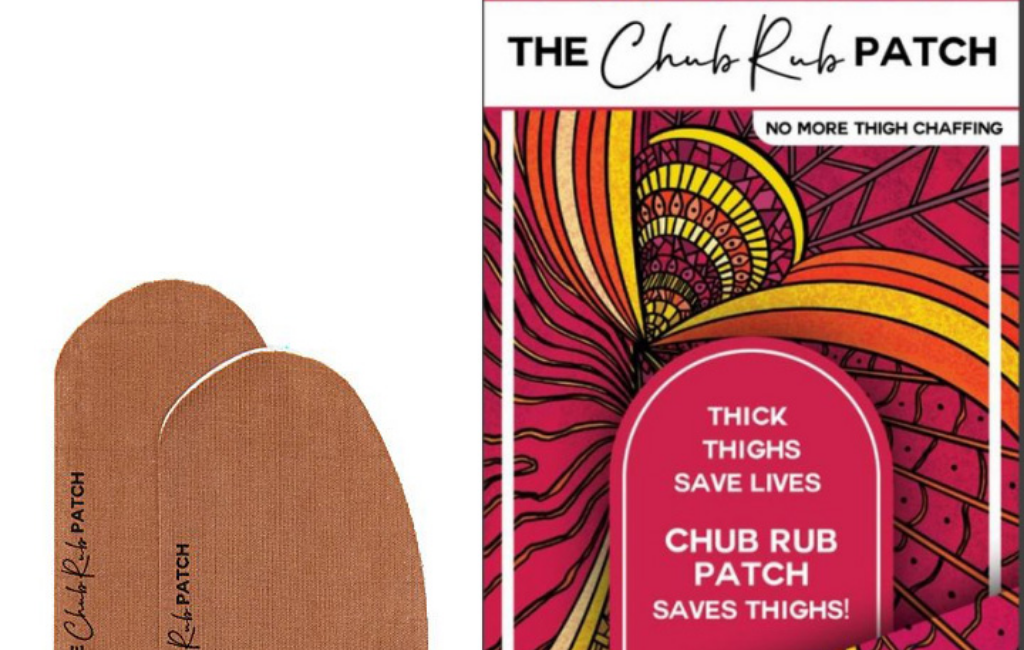Big Mouth Toothbrush
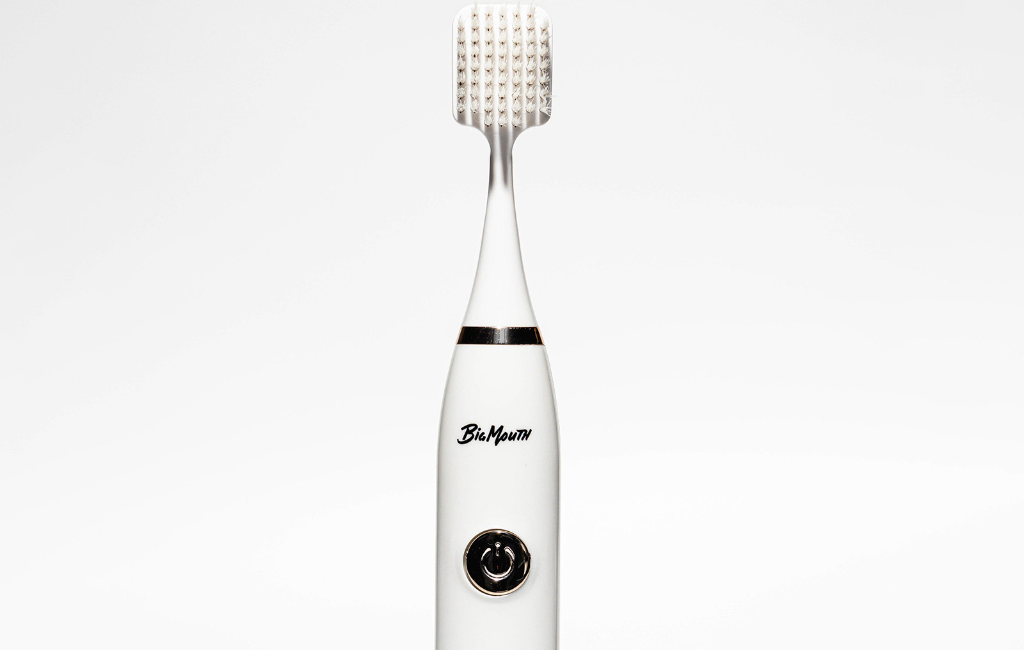

DEAL
EPISODE SUMMARY
🕓 Air Date: March 3, 2023
Asking For:
$150,000 for 10%
Investor:
Barbara Corcoran
Deal:
$150,000 for 20% + $2 royalty
PRODUCT SUMMARY
The Big Mouth Toothbrush is a wide head electronic toothbrush designed to cover more surface area and provide a spa-like brushing experience
WATCH HERE
IN A RUSH?
Click these to jump to the section you want to read.
Background Story
Bobbi Peterson, the founder of Big Mouth Toothbrush, is an orthodontist from Brooklyn, New York. She was motivated to create the Big Mouth Toothbrush to address the serious issue of gum disease, which affects a significant portion of the population. Bobbi emphasized the importance of oral health in maintaining overall well-being, as gum disease can lead to serious health problems, including cardiovascular disease and stroke.
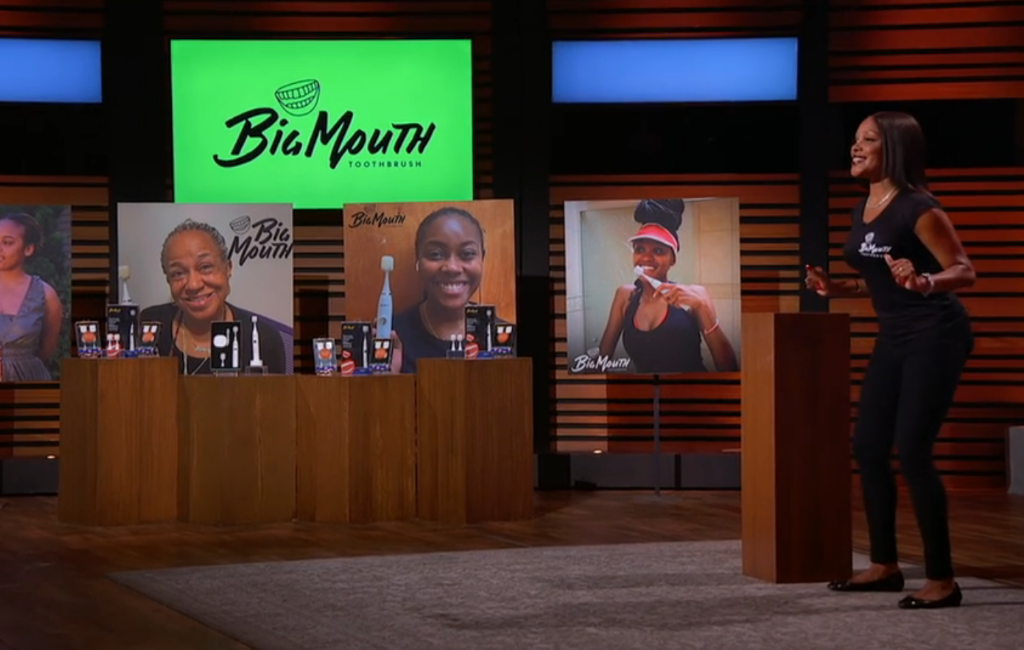
Bobbi’s background includes overcoming adversity as the youngest of eight children and becoming a teenage mother. Her determination led her to complete her education, including four years of college, four years of dental school at Howard University, and a three-year orthodontic residency. She opened her own orthodontic practice shortly after completing her residency.
The Product
The Big Mouth Toothbrush is an electronic toothbrush with a unique, wide-head design. This design allows it to cover more surface area while brushing, providing a massaging and relaxing experience.
The toothbrush offers five different settings: gum care, sensitive, clean, polish, and white. It also cuts down on brushing time by effectively cleaning a larger area.
The product’s benefits include a more effective and efficient brushing experience, reducing the risk of gum disease and associated health problems. The wide head design is patented and sets it apart from traditional toothbrushes. It is available for purchase at a price of $69.99.
Bobbi initially sold the Big Mouth Toothbrush in her orthodontic practice and later expanded to online sales. The cost to manufacture the toothbrush is $14, providing a healthy profit margin.
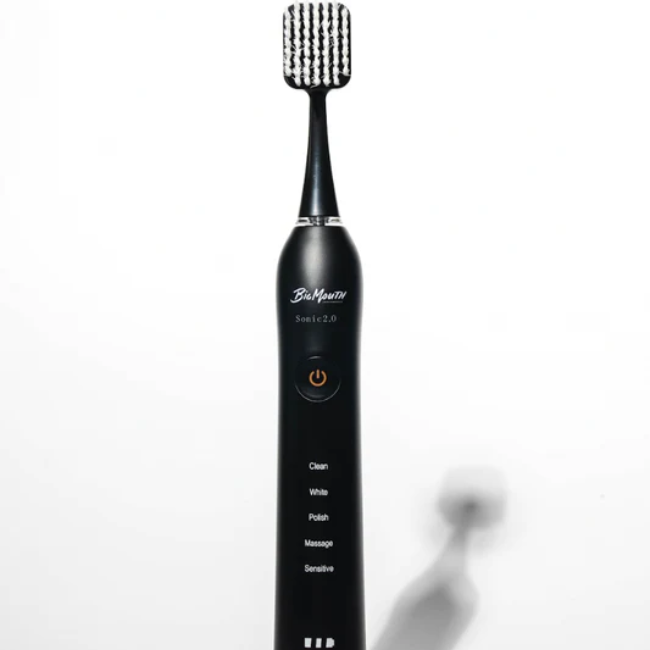
How It Went
The company’s position before Shark Tank
Big Mouth Toothbrush started as a dental product primarily sold through Bobbi Peterson’s orthodontic practice. The initial sales success can be attributed to Bobbi’s reputation as an orthodontist, as well as the unique design of the toothbrush. Bobbi expanded her sales to online platforms and managed to sell 60,000 units within seven months, with a profit margin of $55 per unit.

However, the toothbrush market is highly competitive, and it can be challenging to break into an industry dominated by established players. Bobbi was seeking $150,000 in exchange for 20% equity in her company. She wanted to use the funds to hire staff, establish a dedicated space for packaging and shipping, and potentially move into retail.

Her ambition is to dedicate 100% of her time to growing the business, and she has plans to hire another orthodontist for her practice. The company’s structure and funding sources were not explicitly detailed in the pitch, but it appeared that Bobbi was running the business independently and managing sales and distribution. She successfully landed a deal with Barbara Corcoran, who offered $150,000 for 20% equity and a $2 royalty per unit sold.
The Negotiations:
Bobbi’s pitch generated interest from the Sharks, particularly Barbara Corcoran, who saw potential in the product. After the other Sharks dropped out, Barbara offered $150,000 for 20% equity with an additional $2 royalty for each unit sold. This offer would allow Barbara to benefit from the product’s success. Bobbi initially hesitated to accept Barbara’s royalty offer, as she believed her product had great potential.
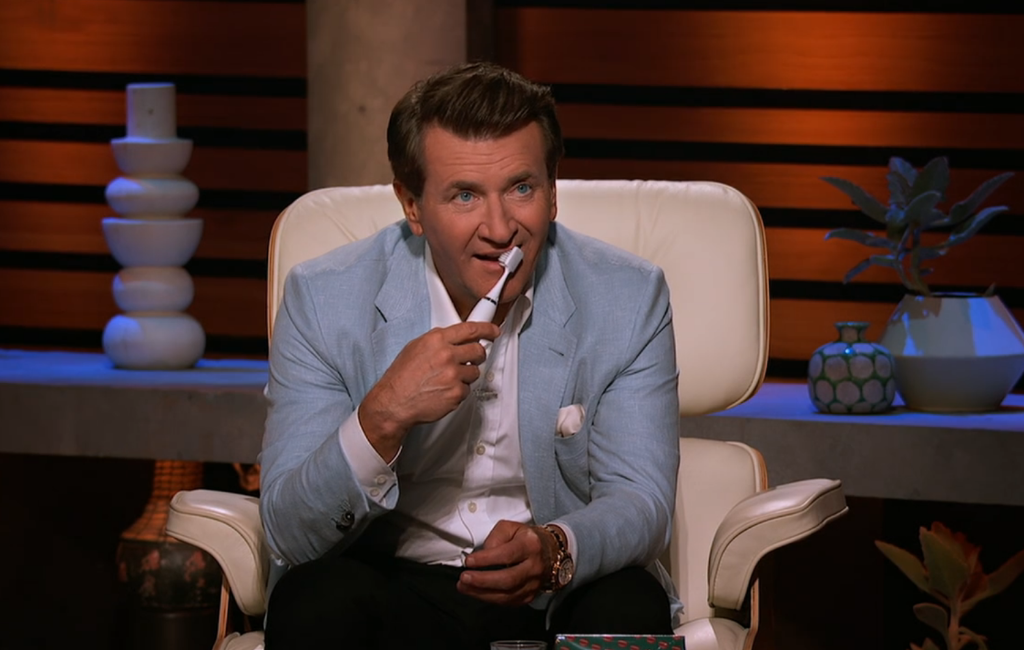
However, Barbara’s experience and reputation convinced Bobbi that this was a valuable partnership. She ultimately accepted the deal, marking a successful negotiation and bringing Barbara on board as her investor and partner. Kevin O’Leary had also offered a deal earlier, but his terms were less favorable, with a higher royalty rate. Bobbi’s decision to go with Barbara’s offer was driven by her trust in Barbara’s ability to help the product succeed and her belief that the $2 royalty was a more reasonable proposition for her business.






